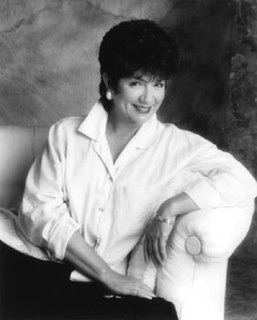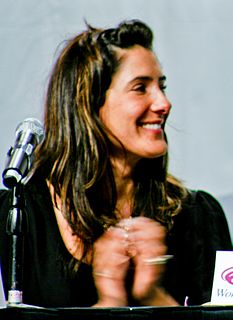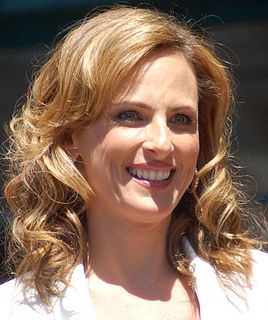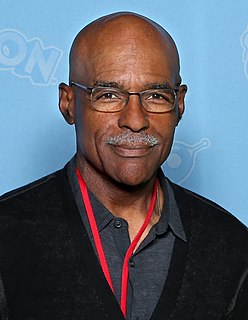A Quote by Natalie Goldberg
I don't mean to be flippant about cancer - it was hard, it was tough and it was scary. Then my next manuscript was about cancer because I had a whole new topic to write about. And because I wrote, it didn't take over. Writing took the chaos out of cancer.
Related Quotes
I wrote the book Don't Die, My Love as I was going through radiation, so it certainly has an air of authenticity about it because I was there. I think all of my books took on kind of a deeper tone when the lady who wrote about cancer all of a sudden had cancer. I'm doing well. I went through it all and they said, 'You're fine."
My father died of brain cancer in 1991. I do not know anyone whose life has not been touched by the loss of a loved one to cancer. I wrote my book 'Gracefully Gone' about my father's fight and my struggle growing up with an ill parent. I wrote it to help others know they are not alone in this all-too-often insurmountable war against cancer.
For people who are afraid to talk about cancer, for people who are afraid to communicate with their loved ones about it, and for the people who want to pretend cancer doesn't exist, either delaying diagnosis or not getting regular checkups, the consequences can be fatal. Doing nothing about cancer will kill you.
I was diagnosed with an early, early stage of prostate cancer. I was almost a vegetarian then. I was heading that direction. What pushed me over the edge, was the doctor who did the diagnosis. He said in a discussion about prostate cancer that he had never seen a vegetarian with prostate cancer. And this is not a holistic doctor, this is a regular, mainstream doctor. And I was just blown away.
One of the pitfalls about writing about illness is that it is very easy to imagine people with cancer as either these wise-beyond-their-years creatures or these sad-eyed tragic people. And the truth is, people living with cancer are very much like people who are not living with cancer. They're every bit as funny and complex and diverse as anyone else.
Cancer is too real, and too awful, and I can't make it good or magical. I couldn't even read a book where a character had cancer, for a while... But now I've reached a point where I don't think about cancer nonstop anymore, and sometimes I worry about that - I'm going to forget what I went through; I'm going to forget how horrible it was.

































